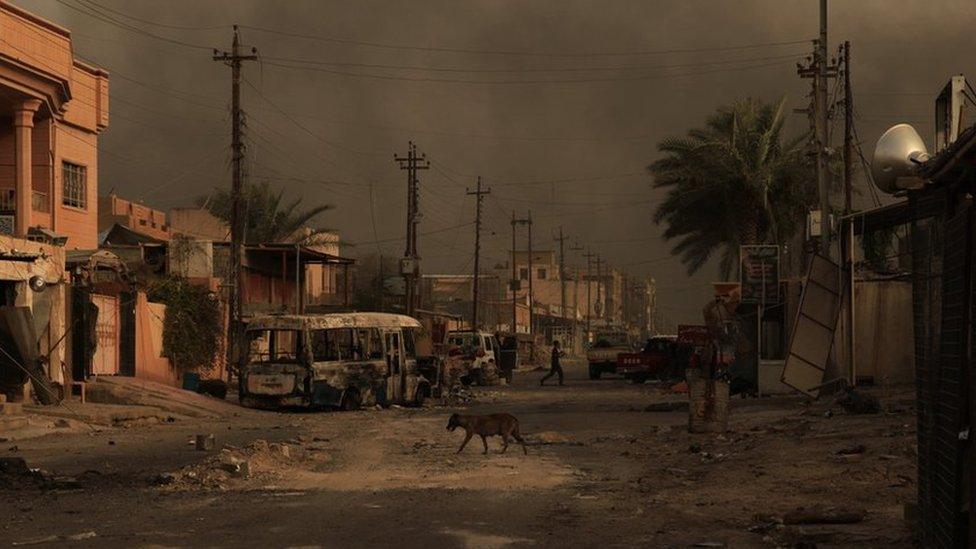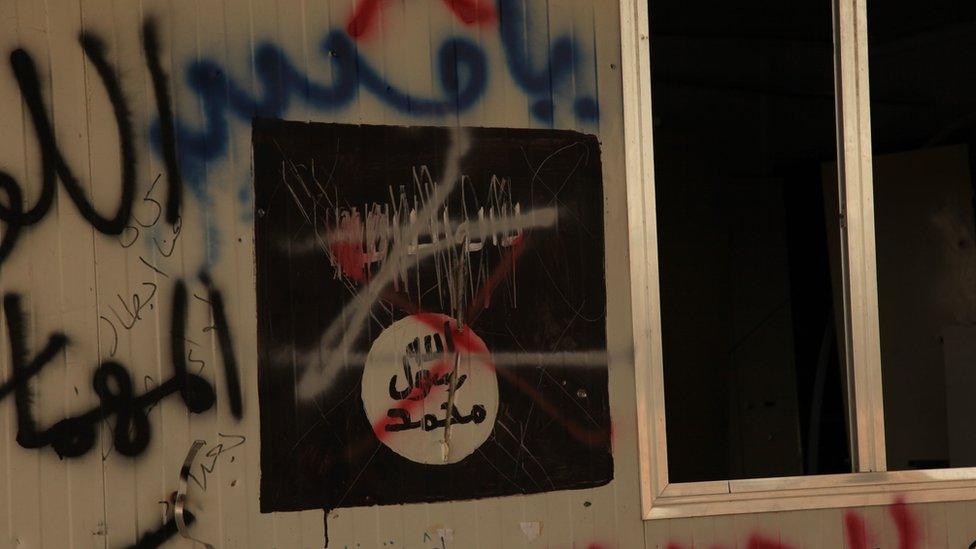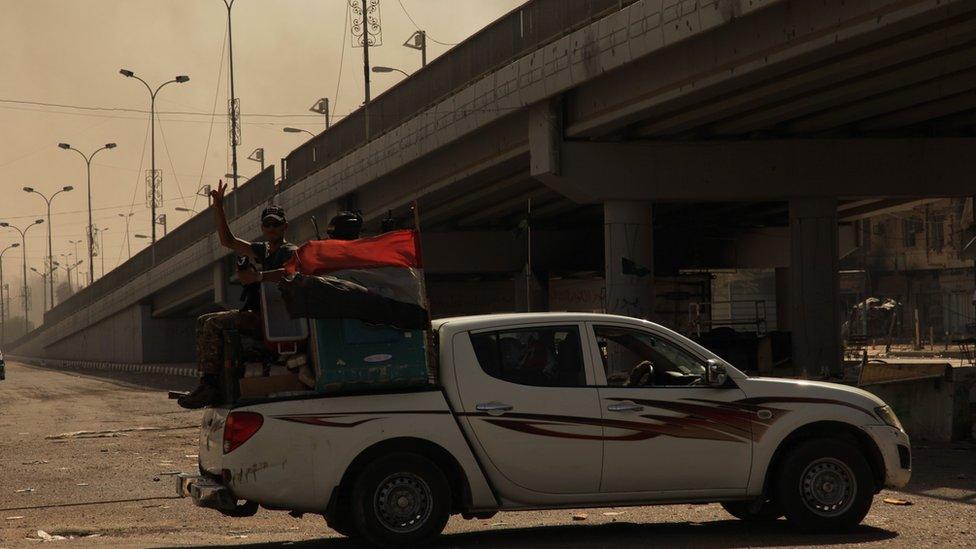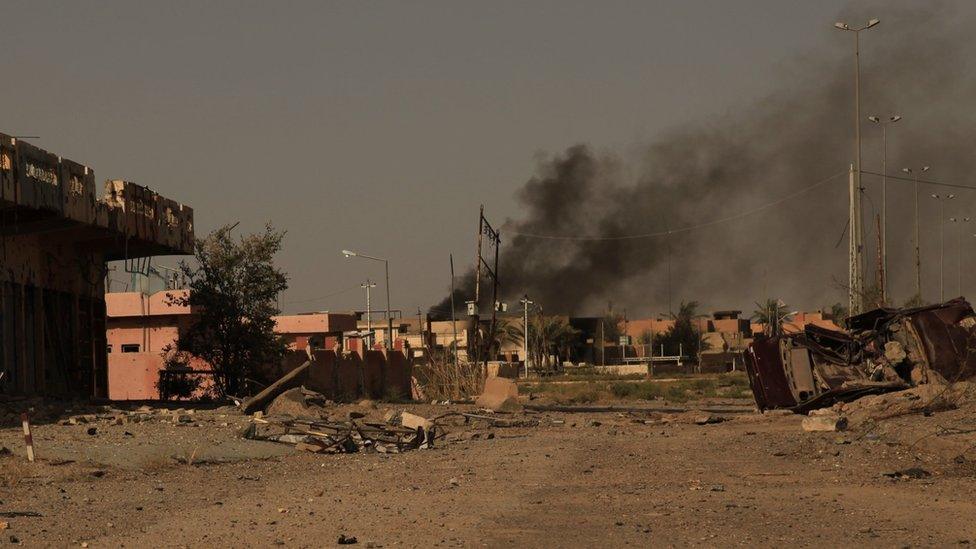Inside Falluja after IS: 'The air smelt of war'
- Published

The air in Falluja smelt of war. Fires were burning around the city centre.
Some of them, according to Lieutenant Hassan, an Iraqi intelligence officer at the scene, were started by Iraqi troops.
He said they would throw grenades into suspicious buildings. In one of them I could hear ammunition exploding.
Falluja was virtually deserted, except for roving bands of cheerful Iraqi troops.
Falluja: Embattled city of mosques
IS may be down but it is not out
Islamic State group: The full story
All the civilians appeared to have left. I saw corpses of fighters from the jihadist group that calls itself Islamic State (IS), left where they died.
Lt Hassan showed me what passed for law enforcement in Falluja under Islamic State.
A Sharia (Islamic law) court had been set up in what had been a spacious villa in a well-to-do avenue. The lieutenant said they had captured official stamps and paperwork in the building proving that it had been used as a court.
Next door in a similar villa, now badly damaged by fire, was one of half a dozen improvised prisons established in Falluja by IS.
In what must once have been someone's sitting room were half a dozen steel cages. Two of them were only waist-height.
It would have been agonising for an adult to spend more than a few minutes inside one of them. Presumably sentences were longer than that.
Jeremy Bowen reports from the centre of Falluja: "They've scored a major victory"

Not every building was damaged but there was a lot of destruction. Whole suburbs looked as if they had been virtually deserted since IS seized Falluja early in 2014.
Grass was growing in the streets and lines of houses looked as if they had been abandoned for a long time. Much of the population fled as the city was falling to IS.
The Iraqi army has scored a major victory in Falluja. The town is less than an hour's drive from Baghdad when war doesn't intervene.
It has been a stronghold for jihadists since the rise of al-Qaeda in Iraq during the early years of the American-led occupation after the 2003 invasion.

IS grew out of al-Qaeda in Iraq, and since they seized Falluja it has been a bulwark of their power in the area close to Baghdad.
Mosul in their sights
Despite their defeat in Falluja, the jihadists of so-called Islamic State are still a force to be feared in Iraq.
They still hold Mosul, the country's second city.
Mosul has to be the next big objective of the Iraqi army - and most likely their allies in Shia militias.

Some of the most feared militias are supported and often directed by Iran.
In Falluja, the militias were not involved in the fighting for the city centre, but they hold much of the countryside close by.
If IS chooses to stand and fight in Mosul, the Iraqi army will have a much harder job there than in Falluja.
But the army's morale is high. Commanders and soldiers are delighted by a victory that goes part of the way to redeeming their rapid capitulation to IS in 2014.